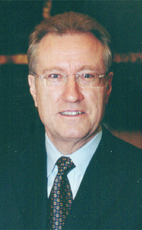Mr. Speaker, in accordance with section 48 of the Official Languages Act, I am pleased as President of the Treasury Board to table, in both official languages, the annual report on Official Languages in Federal Institutions.
This report covers fiscal year 1992-93. It reports on the progress of the official languages program in federal institutions. I am particularly proud to table this report because institutional bilingualism has come a long way since 1969 when the first Official Languages Act was adopted.
This year, more precisely on September 7, we will celebrate the 25th anniversary of the coming into effect of the first Official Languages Act.
The 1969 legislation made English and French the official languages of Canada for all purposes of Parliament and the Government of Canada so that they would have equality of status in all the institutions of the Parliament and Government of Canada.
A new Official Languages Act replaced the 1969 legislation on September 15, 1988. It reflects the significant changes that have taken place in the status and use of the two official languages since that first legislation.
The 1988 act further specifies the constitutionally entrenched rights and linguistic principles initially set out in the Constitution Act, 1867 and then in the 1982 Canadian Charter of Rights and Freedoms.
In line with the 1982 charter the 1988 act provides the framework and the provisions required to translate constitutional language guarantees and principles into day to day realities.
The annual report on official languages describes the activities carried out and progress achieved by federal institutions in 1992-93 in implementing the act.
It reflects their significant accomplishments in meeting the three main objectives and commitments of the program.
These are as follows. Within certain limits Canadians can deal with federal institutions in the official language of their choice. In designated bilingual regions employees of these institutions can work in the official language of their choice. English speaking and French speaking Canadians have equal opportunities to obtain employment and advancement in federal institutions.
The government clearly expressed its conviction and commitment to official languages in the recent speech from the throne.
Our cultural heritage and our official languages are at the very core of our Canadian identity and are sources of social and economic enrichment.
In making sure that federal institutions live up to their obligations under the Official Languages Act the government will continue to transform this conviction and commitment into reality in its day to day operations and in its contracts with Canadians right across the country.

